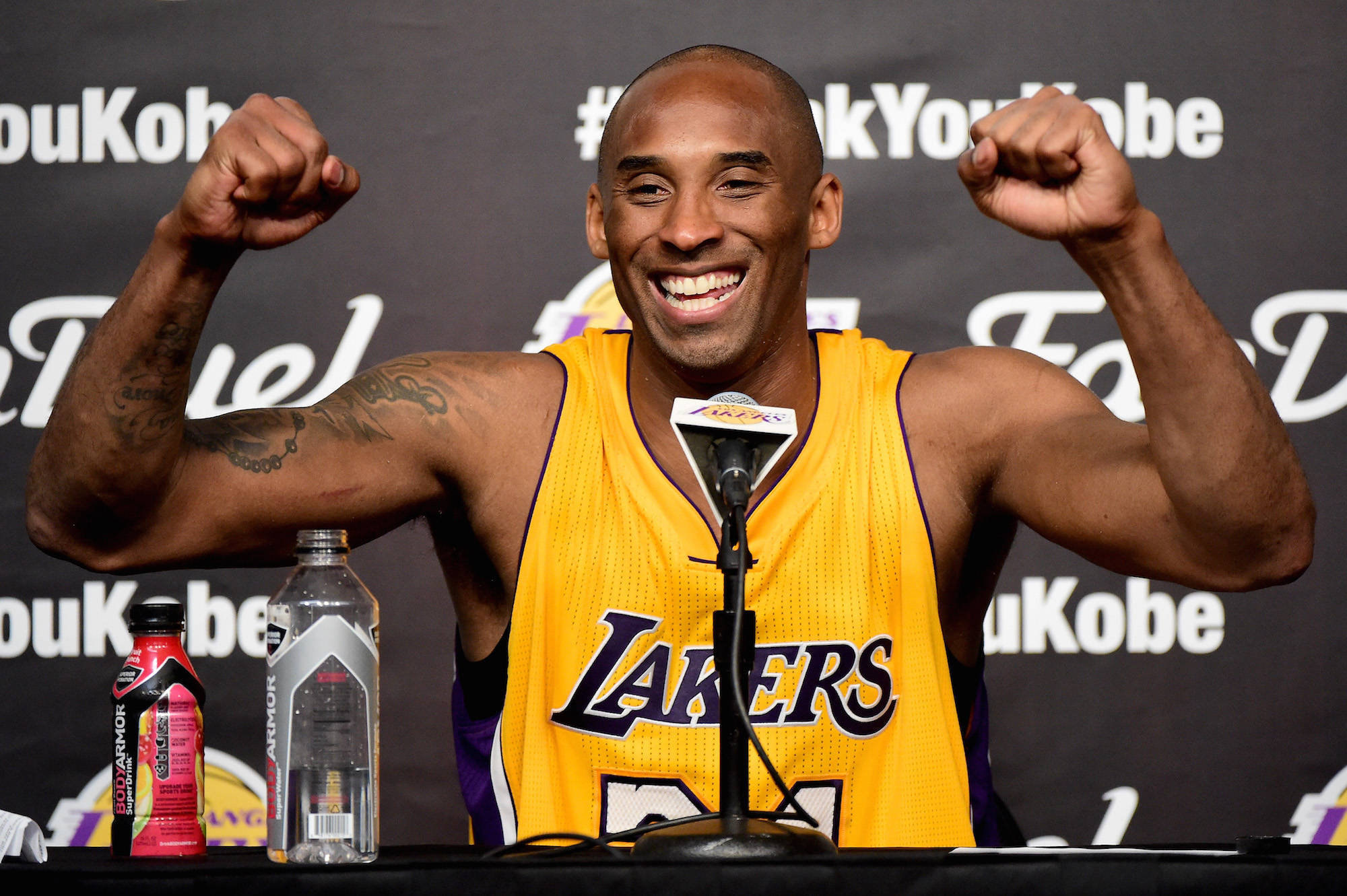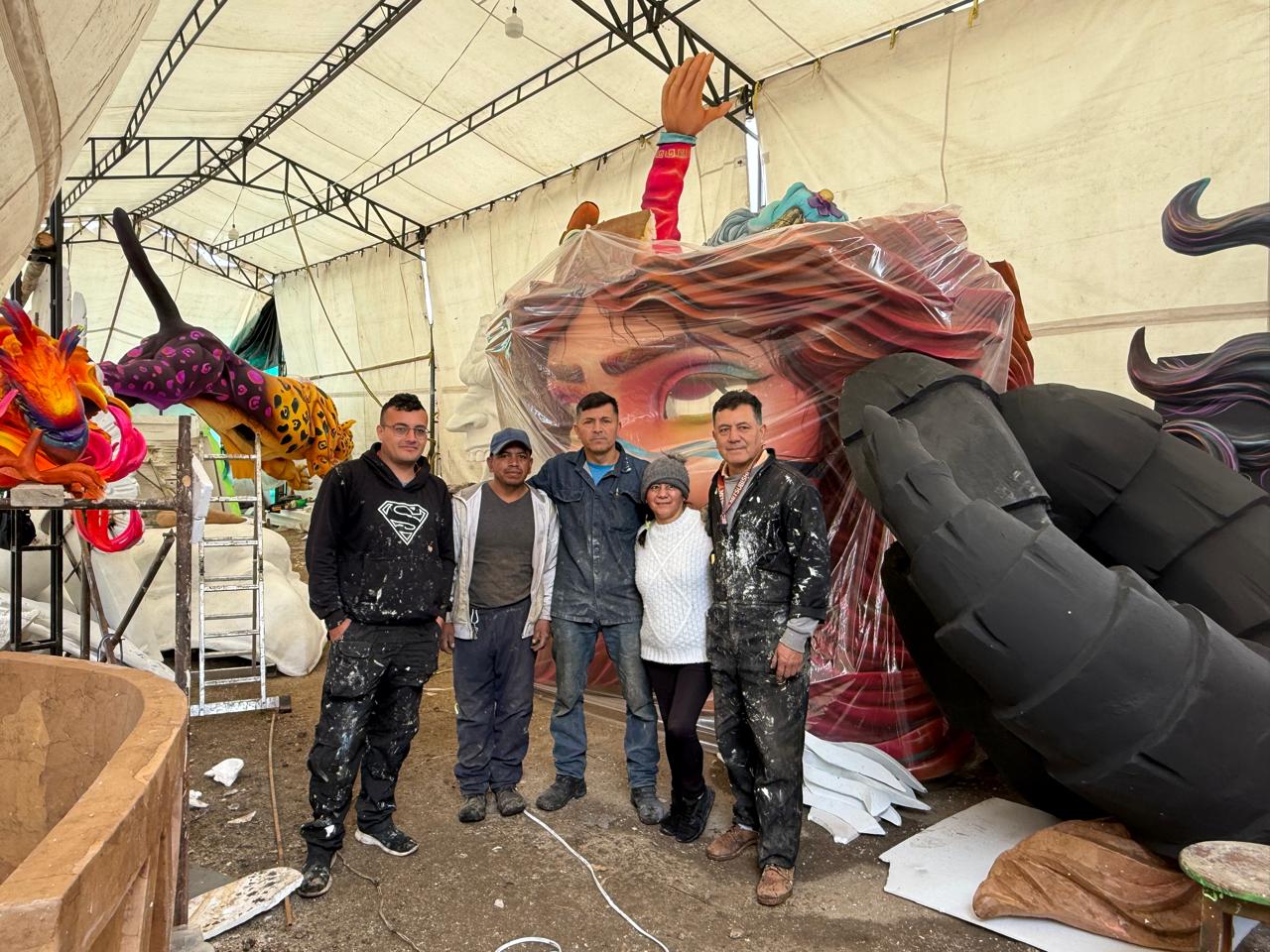
Kobe Bryant’s relationship with Latinos was special
The NBA legend captured the growing Latino spirit of Los Angeles at the right time.
After dropping 60 points on the Utah Jazz in his final NBA game on April 13, 2016, Kobe Bryant took some time during his final press conference to talk to his Latino fans.
“My Latino fans are very important to me because they were the first ones who embraced me when I first got here,” he said at the time.
He went on to remark how his Spanish had also improved over the years.
“It’s significant to me because I have a Latina wife and kids,” said Bryant.
But beyond the NBA legend’s language prowess and family connection, Bryant’s dedication and work ethic on and off the basketball court captured a whole generation of Latinos in Los Angeles and across the country, and attracted them to the sport.
Many of those fans gathered yesterday outside the Staples Center in downtown Los Angeles to pay respects to their hero.
Bryant, along with his 13-year-old daughter Gianna and seven others were killed in a helicopter crash on the morning of Sunday, Jan. 26.
He and his daughter and other parents and teammates were traveling to basketball practice at Bryant’s Mamba Academy in Thousand Oaks, California, when the helicopter encountered trouble navigating the thick, foggy morning.
Bryant’s helicopter was given special clearance to make the trip while others in the area stayed grounded until the fog lifted.
According to flight data, it struggled for a number of minutes to gain proper altitude in the fog before crashing into a hillside in Calabasas, California.
Initial reports of the crash didn’t name any of the victims, but once Bryant’s name was released, it sent shockwaves around the world.
Los Angeles Times reporter Gustavo Arellano captured one somber scene during the lunch rush at one of Bryant’s favorite dining spots.
“Families shook their head in disbelief as they scrolled through their smartphones for the latest updates between sips of tripe soup,” wrote Arellano.
The restaurant was a Mexican spot, where Arellano learned Bryant’s favorite meal was “carnitas, with flan for dessert.”
“Sometimes, the couple and their daughters dined in; when Kobe didn’t want to draw attention, he’d sneak in through the back to hang out with workers and greet everyone in Spanish. And if he couldn’t come in person, Bryant called in big orders that friends picked up to take back to his Newport Coast mansion,” wrote Arellano.
RELATED CONTENT
For the rest of his article, Arellano recounts Bryant’s affinity throughout his career in Los Angeles for Latino culture.
Statistically, Los Angeles county, California contains nine percent of the U.S.’s entire Hispanic population, according to a 2013 Pew study. When Kobe Bryant came to the Lakers in 1996, that Hispanic boom was just getting underway.
A study by California’s Legislative Analyst’s Office from that year predicted the Hispanic population to double in the state between 1990 and 2010. Included was also a prediction that by 2010, more than two thirds of California’s school children would also be Hispanic, Black or Asian.
In L.A., Mexican immigrants drove the boom.
“He came at the perfect moment, when L.A. had become more brown,” José Alamillo, a professor at Cal State Channel Islands told Arellano.
But more than timing, Bryant’s relentless pursuit of victory on the court was an inspiration for many children of immigrants, who saw the same work ethic in their parents.
Whether he knew it or not, his signature “Mamba mentality,” represented a whole generation of people chasing the American dream.
A number of professional athletes and figures around the world shared their grief.
My heart hurts so much right now. I still can't wrap my head around this. How can it be?
— Alex Rodriguez (@AROD) January 27, 2020
I learned so much from Kobe Bryant. He was naturally gifted, but had a passion for basketball like no one else I've ever seen. pic.twitter.com/72OX3Z8Sv9
Devastated.
— Manu Ginobili (@manuginobili) January 26, 2020
Beyond devastated... my big brother... I can’t, I just can’t believe it
— Pau Gasol (@paugasol) January 26, 2020











LEAVE A COMMENT:
Join the discussion! Leave a comment.